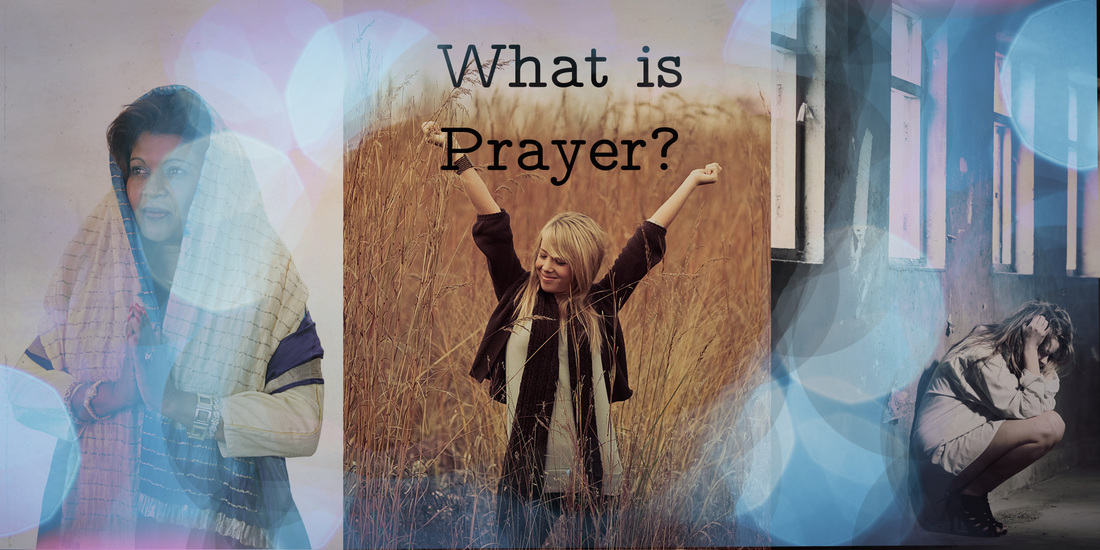|
Prayer: The act of petitioning, praising, giving thanks or confessing to God. (The Harper Collins Bible Dictionary) We might all have different ideas when it comes to prayer. Prayer can be further defined based on the tradition and number participating. I cannot, nor will I, attempt to explain a tradition I'm not part of. If you are Catholic, Orthodox, Jewish, or basically anything other than mainline Protestant, this meditation is not for you. You might gain some insight from the biblical trail I'm going to highlight, but I'm in no way attempting to explain how prayer works in your specific tradition. Biblical HistoryWith that said, the bible is many things. It's a spiritual guide. It's an understanding and explanation of how God's community is supposed to work. It's a history. As a history, there are evolutions. (Oh, no! I said there's evolution in the bible! Someone inform Ken Hamm of my heretical ways!) I'm not talking about that kind of evolution, although I'm not personally a Young Earth Creationist (YEC for short). This is the evolution of our relationship with God. There's an evolution of Temple Worship. There's an evolution of who are considered God's people. There is also an evolution of how we communicate with God. Prayer assumes we are communicating. How this communication happens has evolved over the centuries. In the beginning, those trying to understand our origin perceived Adam, Eve, and other really early biblical persons as speaking directly to God, (Gen 3:9-12). It was believed Moses was among those who communicated "as a man speaks to a friend," (Exod. 33:11). (We wouldn't see that kind of one on one dialogue again until Christ.) Later biblical persons, specifically Prophets, would communicate through visions and dreams initiated by God, (e.g. Dan 7). Yet prayer, even early on, was something anyone could do at anytime. True, special prayer times were set aside. Special days and hours specifically to pray for specific things, (Dan 6:10). The Sabbath and the Temple became a very specific place where prayer would be highlighted. When we get to the New Testament, the story is less about where and when to pray, and more about how to pray. Jesus Christ gave us some great examples of prayer. The two most obvious being: The Lord's prayer (Matt 6:9-13; Luke 11:2-4) The Parable of the Pharisee and the Tax Collector (Luke 18:9-14) We also see Christ engage in communial prayer at the first Communion, (Matt 26:26-9) and individual prayer at multiple places throughout the Gospels. What do we pray for?"The biblical expression of prayer is diverse. It appears there is almost nothing that can't be expressed to God. However, various prophets extended one truth about prayer: It must be "offered with integrity, pure motives, and only within the context of having attended to ethical concerns," (Harper Collin's Bible Dictionary,) Some examples of this are Isaiah 1:15-17, Hosea 6:6, Micah 6:8, Prayers can be praises, adoration, thanksgivings, laments, requests, intercession... the list goes on. When I mentally try to limit what prayer can be, I remember Psalm 137. There is nothing comfortable about that Psalm, and it was a prayer prayed by the Israelites in exile. Let me just give you the last line: "A blessing on the one who seizes your children and smashes them against the rock!" It's not that God is going to bless baby killers. It's not that baby killing should be allowed. It's that the words are real. This is a completely demoralized people speaking frankly to God. It's never raised as an example of what not to do. It sits in the middle of the book of Psalms, a holy reminder of just how real we are allowed to be with God. Wanna connect with others? Join Fig Tree on:
Facebook (We live cast the event every Saturday at 2pm EST, for those who wish to participate. Come to the actual event the first Saturday of the month at FCC Marietta.) Our Subreddit |
Categories
All
Archives
October 2023
|




 RSS Feed
RSS Feed